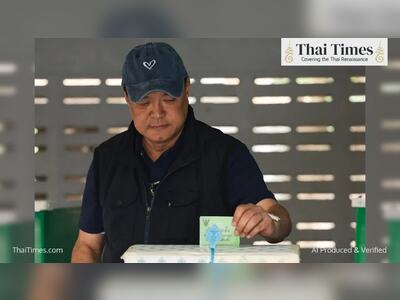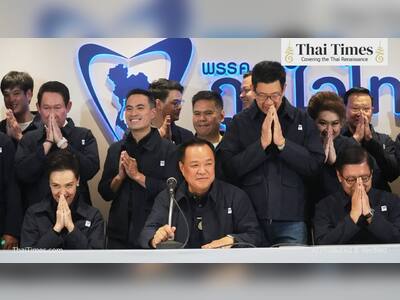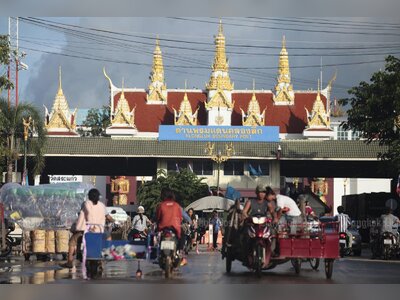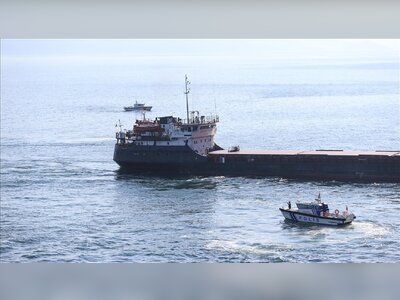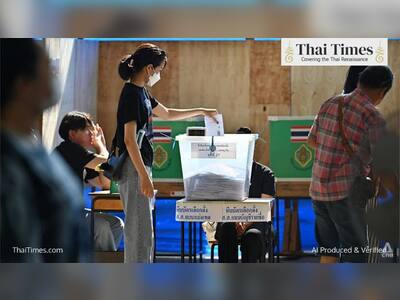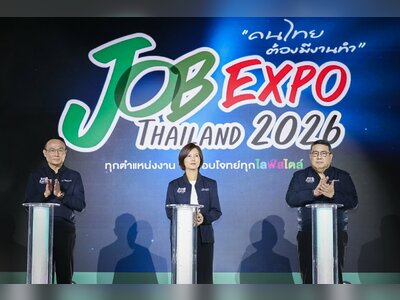Foreign Investors Seek Clarity Amid Thai Market Volatility
Continuing net outflows and market fluctuations prompt calls for clearer policies and infrastructure investment
Foreign investors have increasingly offloaded Thai equities, marking a third consecutive year of net sales amounting to over 400 billion baht, as reported by the Stock Exchange of Thailand (SET).
In 2025 alone, net foreign outflows have reached 70.7 billion baht.
During a recent roadshow in Singapore, SET president Asadej Kongsiri indicated that regional institutional investors are calling for a more stable policy framework, especially concerning significant infrastructure investments and national development initiatives such as the Land Bridge project.
Kongsiri emphasized that foreign investors are attracted to markets that offer clear and well-defined investment policies, which are essential for realizing higher potential returns.
In addition, Kongsiri mentioned the need for revisiting foreign ownership limits in crucial sectors including tourism, hospitality, and banking, to bolster long-term capital attraction.
He pointed out that global economic pressures, especially fiscal measures in the United States, including proposed tax increases, along with high interest rates and a slowing global economy, have adversely impacted investment activity and investor sentiment.
The Thai stock market has experienced notable volatility, particularly in May, coinciding with the removal of several Thai firms from the MSCI index during its semi-annual rebalancing.
Economists warn that potential tariff increases, particularly a proposed 36% tariff on Thai exports to the US, could restrict economic growth to a mere 1%, further influencing investment temperatures negatively.
Despite these challenges, many Thai firms have reported solid earnings and have initiated share buyback programs in response to undervalued stock prices.
Nonetheless, concerns linger regarding the tourism sector, which has seen a significant decline in Chinese tourist arrivals.
Public investment, however, is projected to improve, providing a glimmer of optimism in the economic landscape.
The SET continues to lead in trading liquidity within the region, although daily turnover has decreased to between 30-40 billion baht.
SET senior executive vice-president Soraphol Tulayasathien noted that over half of the listed companies met or exceeded analysts' earnings expectations, aided by falling oil prices, which lowered operational costs.
Financial costs have also declined following a rate cut by the Bank of Thailand.
As of the end of May, the SET index fell 4% from the previous month, closing at 1,149.18 points, which is a sharper decline compared to most regional exchanges.
Year-to-date metrics reveal a total drop of 17.9% for the bourse, attributed to various unfavorable domestic and international dynamics that have affected investor confidence.
In light of current conditions, Kongsiri noted a potential shift in investor strategies towards dividend stocks for stable returns, maintaining that Thai equities present attractive investment opportunities due to their history of consistent and high dividend distributions.
Portfolio diversification across different sectors is regarded as a strategic approach to risk management in times of elevated uncertainty.
The SET and the Market for Alternative Investment (MAI) reported a month-on-month increase in average daily trading value, rising 9.9% to 43.3 billion baht (approximately US$1.33 billion), with foreign investors accounting for 55.3% of total trading value.
Despite this dominance, foreign investors have recorded a net selling position of 16.1 billion baht, largely due to asset reallocations following the MSCI rebalancing.
In 2025 alone, net foreign outflows have reached 70.7 billion baht.
During a recent roadshow in Singapore, SET president Asadej Kongsiri indicated that regional institutional investors are calling for a more stable policy framework, especially concerning significant infrastructure investments and national development initiatives such as the Land Bridge project.
Kongsiri emphasized that foreign investors are attracted to markets that offer clear and well-defined investment policies, which are essential for realizing higher potential returns.
In addition, Kongsiri mentioned the need for revisiting foreign ownership limits in crucial sectors including tourism, hospitality, and banking, to bolster long-term capital attraction.
He pointed out that global economic pressures, especially fiscal measures in the United States, including proposed tax increases, along with high interest rates and a slowing global economy, have adversely impacted investment activity and investor sentiment.
The Thai stock market has experienced notable volatility, particularly in May, coinciding with the removal of several Thai firms from the MSCI index during its semi-annual rebalancing.
Economists warn that potential tariff increases, particularly a proposed 36% tariff on Thai exports to the US, could restrict economic growth to a mere 1%, further influencing investment temperatures negatively.
Despite these challenges, many Thai firms have reported solid earnings and have initiated share buyback programs in response to undervalued stock prices.
Nonetheless, concerns linger regarding the tourism sector, which has seen a significant decline in Chinese tourist arrivals.
Public investment, however, is projected to improve, providing a glimmer of optimism in the economic landscape.
The SET continues to lead in trading liquidity within the region, although daily turnover has decreased to between 30-40 billion baht.
SET senior executive vice-president Soraphol Tulayasathien noted that over half of the listed companies met or exceeded analysts' earnings expectations, aided by falling oil prices, which lowered operational costs.
Financial costs have also declined following a rate cut by the Bank of Thailand.
As of the end of May, the SET index fell 4% from the previous month, closing at 1,149.18 points, which is a sharper decline compared to most regional exchanges.
Year-to-date metrics reveal a total drop of 17.9% for the bourse, attributed to various unfavorable domestic and international dynamics that have affected investor confidence.
In light of current conditions, Kongsiri noted a potential shift in investor strategies towards dividend stocks for stable returns, maintaining that Thai equities present attractive investment opportunities due to their history of consistent and high dividend distributions.
Portfolio diversification across different sectors is regarded as a strategic approach to risk management in times of elevated uncertainty.
The SET and the Market for Alternative Investment (MAI) reported a month-on-month increase in average daily trading value, rising 9.9% to 43.3 billion baht (approximately US$1.33 billion), with foreign investors accounting for 55.3% of total trading value.
Despite this dominance, foreign investors have recorded a net selling position of 16.1 billion baht, largely due to asset reallocations following the MSCI rebalancing.
